Best Shots review: Generations Forged is a mishmash of bland superheroics
While it had amazing potential, Generations Forged is rote and forgettable
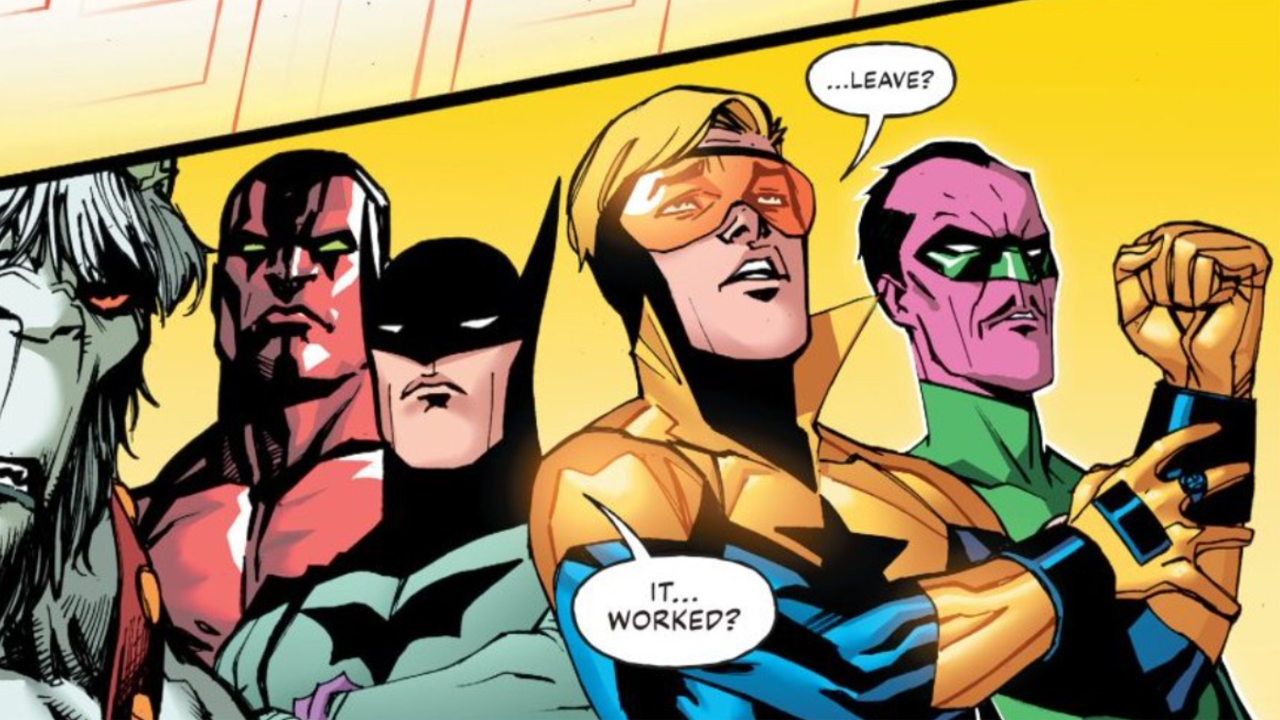
Dan Jurgens, Robert Venditti, and Andy Schmidt tackle Generations Forged like it's the biggest DC Universe story ever, even if we've visited this kind of 'Crisis' event every few years now. There are heroes from nearly every era of DC's history, including the Golden Age Batman and Silver Age Superboy. There's a giant white energy wave that's devouring time and space. And there's a central villain behind the destruction, Dominus, who bears an uncanny and slightly meta-narratively distracting resemblance to Brian Michael Bendis. It's almost like Bendis is the big-bad of this event and that thought is almost more interesting than anything else that this issue has to offer, especially considering he was originally co-writing this event.
Written by Dan Jurgens, Robert Venditti, and Andy Schmidt
Art by Mike Perkins, Marco Santucci, Paul Pelletier, Norm Rapmund, Bernard Chang, Joe Prado, Colleen Doran, Bryan Hitch, Dan Jurgens, Kevin Nowlan, and H-Fi
Lettering by Tom Napolitano
Published by DC
'Rama Rating: 5 out of 10
The construction of this story feels like an old-school Justice League story. After a threat gets introduced, the team has to split into smaller factions to deal with different aspects of it. Back in the day, this would mean that Green Lantern and the Flash would have to go and deal with some henchman of Kanjar Ro. In this book, it means that Steel and Superboy find themselves exiled on some prehistoric world where they drive a Flintstones car while Batman, Booster Gold, and Sinestro find themselves in OMAC's future. This gives the writers and their cadre of artists an opportunity to allow each of our heroes to have a conflict that they need to solve as they play around in the various DC playgrounds.
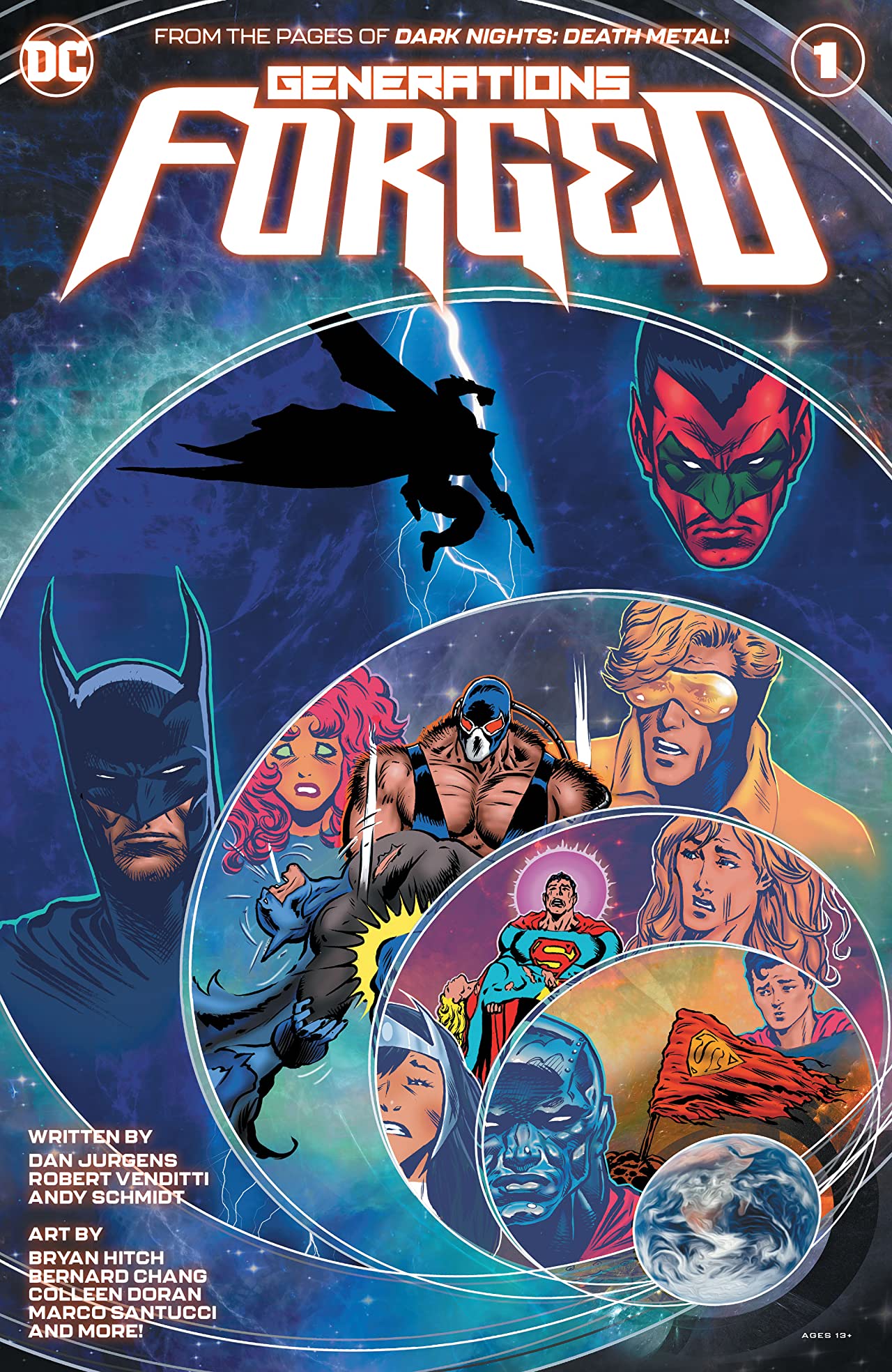
This old-school approach makes this story feel dated before it even gains any momentum. This Crisis on Infinite Earths riff that everyone is working on is something that we've read over and over again. It's a tired story that DC pulls out when it wants to make some kind of seismic shift in its continuity. It first happened in Crisis on Infinite Earths, but DC repeated it in Zero Hour, in Infinite Crisis, in Flashpoint, and probably even a couple of times since 'The New 52' launch. It's almost like this story doesn't know that this is a story that's been told over and over again. If anything, there is an unironic charm in Generations Forged in how it embraces its retro nature. It looks like a comic that is more at home in the '80s or '90s than it is in 2021. With the exceptions of Mike Perkins' pages which gives us a glimpse of the man behind Dominus, all of the artists are more skilled at drawing the superhero antics of these characters than in creating any drama for these characters.
Generations Forged is a comic-by-committee and that rarely churns out anything memorable. There are three credited writers and 11 artists listed for this book. The artists' styles range from Mike Perkins to Colleen Doran and to Bryan Hitch and cover almost everything in-between as well. But to throw them into one book like this, with generic coloring by Hi-Fi, creates a very bland-looking book, with the individual styles all becoming washed out in his hodgepodge of characters and settings. Perkin's black-white-and-gray-washed pages stand out but those are the only pages that contain any style or weight behind them. With all of these creative people working on this issue, the final result is this visual mishmash of bland superheroics.
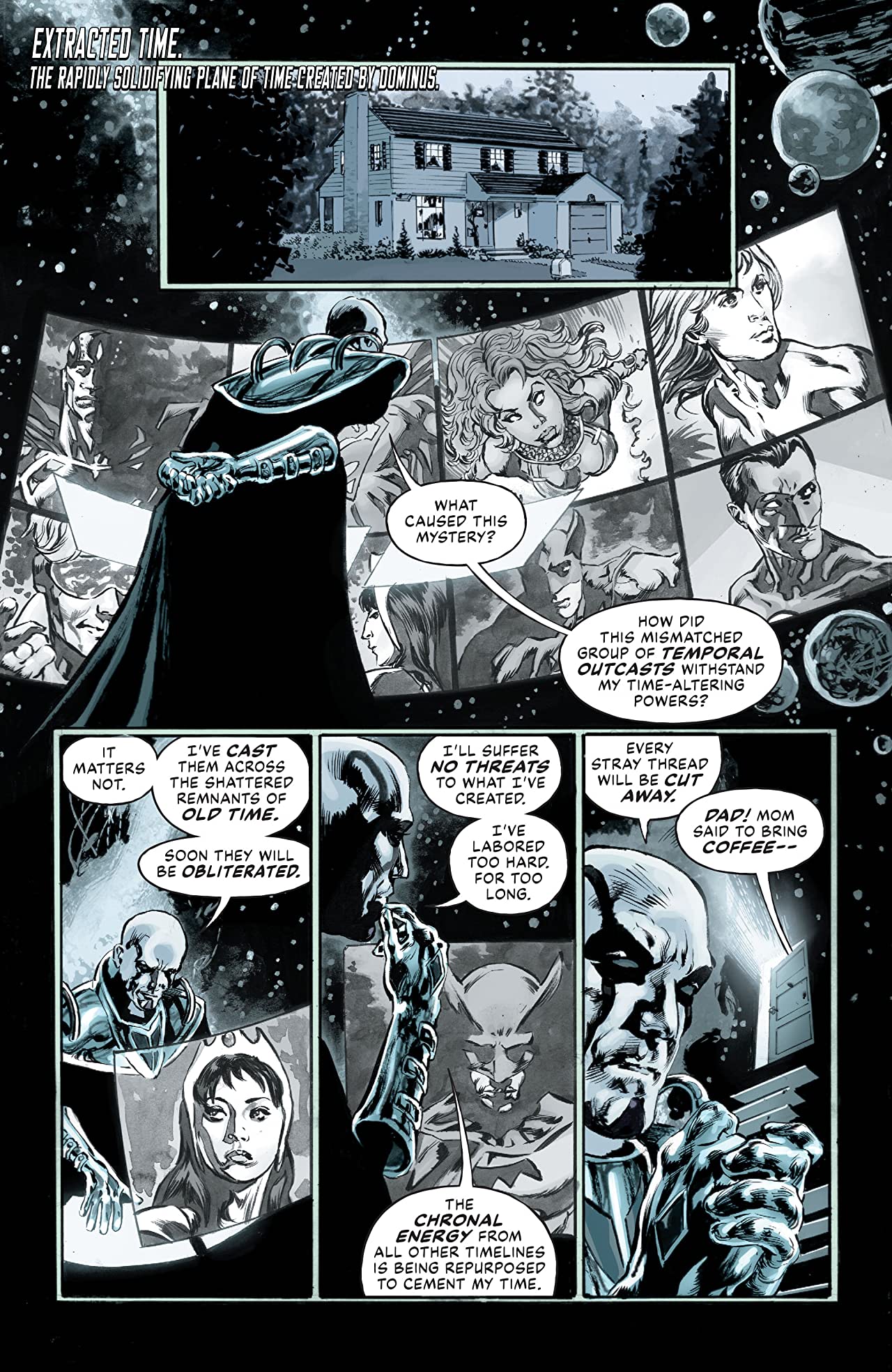
Generations Forged preview
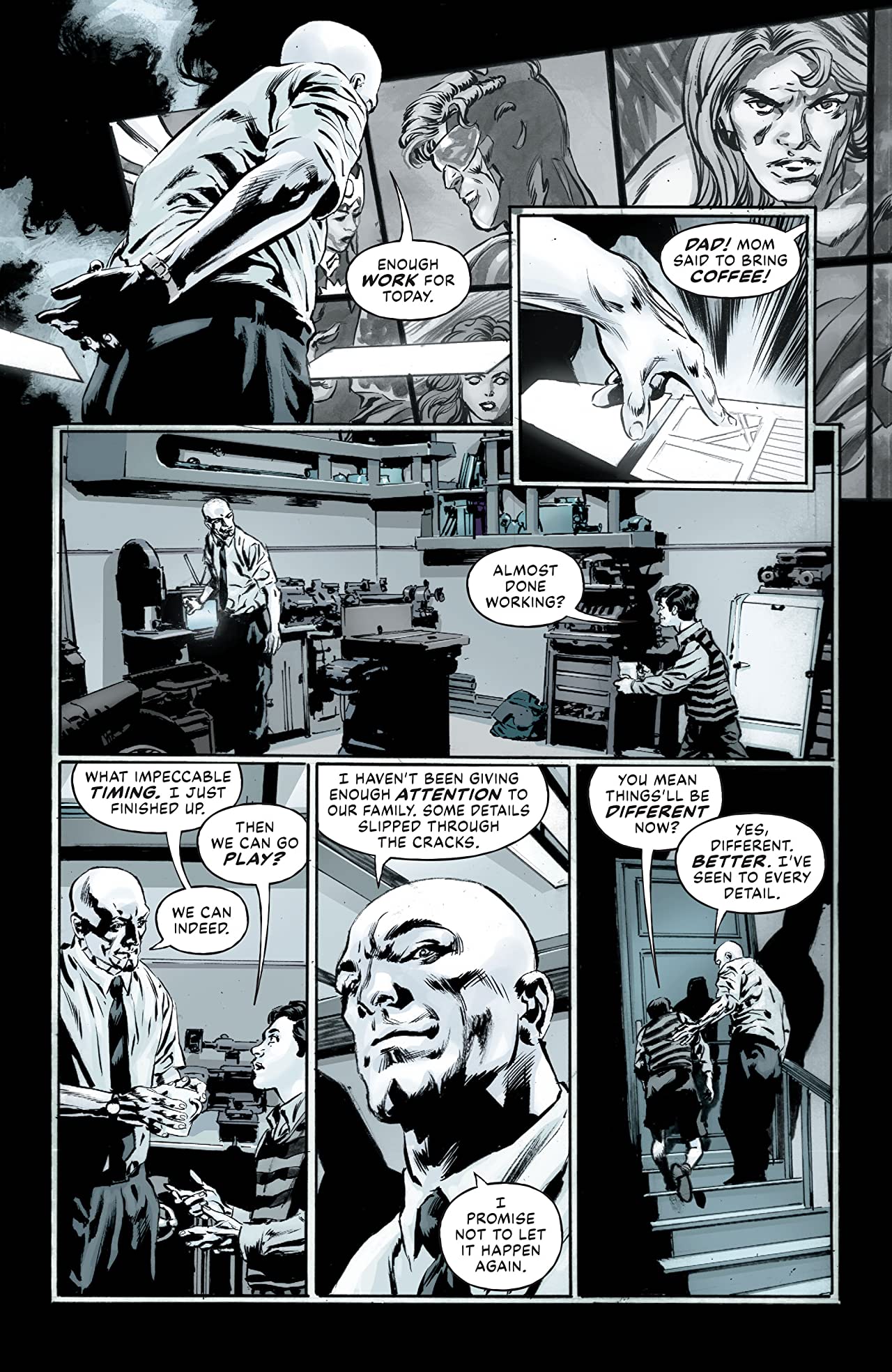
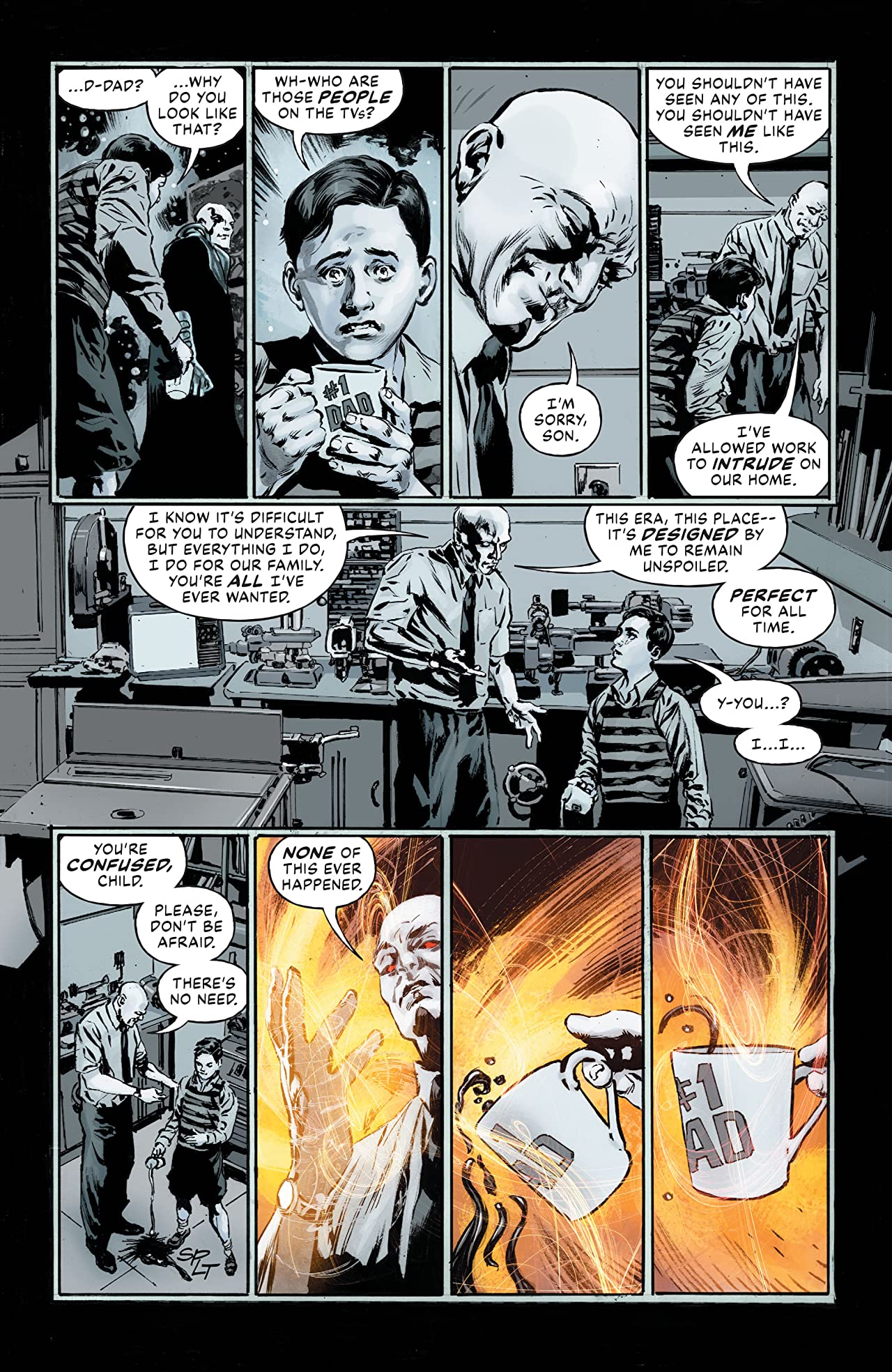
There are some interesting concepts and themes behind this comic that, if developed more, could have turned this into an interesting statement about DC's comic books. This collection of characters has little in the story that ties them together. From a story perspective, there's no rhyme or reason that this story has to be told with these characters. Yet looking at them a bit more, these are largely versions of these characters who have been lost to the annals of reboots and continuity resets. These are old Golden Age, Silver Age, and Bronze Age versions of these heroes and villains who have had their histories wiped out by DC's constant need to rejigger its universe. That's a fascinating thread for this team to be together that the writers seem on the verge of exploring in the end, before brushing it aside and looking to restore everything to the way it was before.
And then there's the way that it addresses continuity of characters who have existed since 1938. Without getting into spoilers about how this issue addresses 80 years of DC history, it helps to recall Grant Morrison's Batman run, where they just accepted that everything in Batman's history happened to this one character. There were no alternate versions of the character, no reboots, no trying to reconcile unreconcilable stories. All Batman stories happened to Batman because that was the way that Morrison wanted it. Generations Forged adds a new wrinkle to the DC Universe to offer something of an explanation for DC's history and continuity to exist side-by-side. It's an explanation that is thrown out there at the end of the story, a tagged-on concept that offers a fascinating opportunity for where these stories could go. But we shouldn't be surprised if it is also never mentioned again.
Whatever this Generations event started as, morphed into, and finally hit the comic stands as, it is ultimately another rote and forgettable attempt by DC to offer up some logic behind how all of these stories relate to one another. This is weird because it feels like the recent Death Metal event tried to accomplish the same goals as DC tries to move into whatever its post-continuity existence is going to be. Maybe there aren't enough writers and artists to create a good comic that's driven more by editorial dictate than it is by creative thought. This is a corporate comic that does nothing other than giving DC another chance to try to get its continuity right.
Get the best comic news, insights, opinions, analysis and more!
Here are the most impactful events in DC history.
Scott is a regular contributor for Panel Patter, GamesRadar, and Newsarama, covering comic books since 2002. He specialises in comic book reviews, and also runs the blog I Lost It At the Comic Shop.


